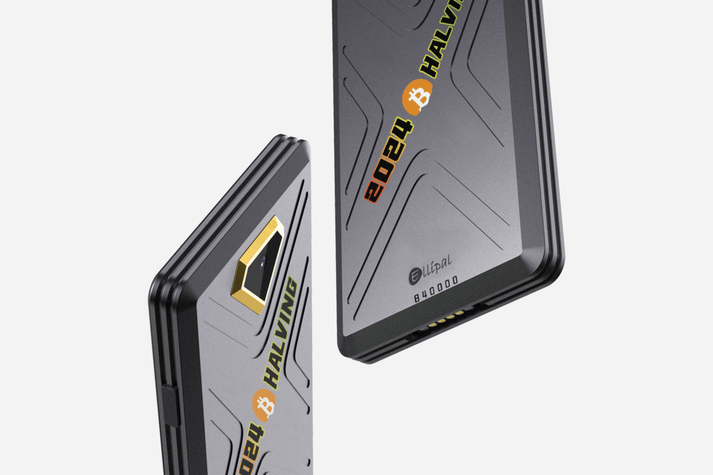Unlock the Secrets: The Ultimate Guide to Choosing Your Perfect Bitcoin Cold Wallet!
In the ever-evolving world of cryptocurrency, security is paramount. A bitcoin cold wallet serves as a vital fortress for your digital assets, safeguarding them from the vulnerabilities of online threats. Unlike hot wallets, which are connected to the internet and susceptible to hacking, cold wallets offer a safer alternative by storing your bitcoins offline. This article aims to equip you with a comprehensive understanding of bitcoin cold wallets, guiding you through the essential factors to consider when choosing one that fits your needs. From exploring different types of wallets to comparing their features, we’ll help you navigate the landscape of cold storage solutions for your cryptocurrency.

Understanding Bitcoin Cold Wallets
A bitcoin cold wallet is a type of cryptocurrency wallet that stores your bitcoins offline, making it less vulnerable to online attacks. This contrasts sharply with hot wallets, which are connected to the internet and can be easily accessed through various devices. The primary purpose of a cold wallet is to ensure that your private keys, which grant access to your funds, are kept safe from potential threats. The security of cryptocurrency storage is crucial; with many high-profile hacks making headlines, the importance of safeguarding your investment cannot be overstated. A cold wallet provides peace of mind, allowing you to store your bitcoins securely while you plan your investments or simply hold them for the long term.
Types of Bitcoin Cold Wallets
When it comes to bitcoin cold wallets, there are several types to consider, each with its own pros and cons. Hardware wallets are one of the most popular options; they resemble USB drives and store your private keys on a physical device. The convenience they offer for managing multiple cryptocurrencies is a significant advantage, but they can be relatively expensive. Another option is a paper wallet, which involves printing your keys on paper. While this method is cost-effective and immune to online hacks, it carries the risk of physical damage or loss. Additionally, there are also air-gapped computers that are never connected to the internet. These offer a high level of security but can be cumbersome to use. Each type has its own unique features, so it’s crucial to assess which aligns best with your security needs and usage preferences.
Key Features to Consider When Choosing a Cold Wallet
When selecting a bitcoin cold wallet, several key features should be at the forefront of your decision-making process. Security measures, such as multi-signature support or advanced encryption protocols, are paramount to protecting your investments. Ease of use is also important; a wallet should be user-friendly, especially for those new to cryptocurrency. Backup options are critical as well; look for wallets that allow you to create secure backups of your private keys and wallet data. Compatibility with different cryptocurrencies is another factor to consider, particularly if you plan to diversify your portfolio. Lastly, consider the wallet’s reputation and user reviews, as they can provide insight into the overall reliability and customer support of the product.
Comparing Popular Cold Wallet Options
While there are various cold wallet options available, it's essential to compare their features, security protocols, and overall user experience. Generally, hardware wallets offer robust security and are suitable for both beginners and experienced users. They often come with user-friendly interfaces and mobile applications, making transactions easier. On the other hand, paper wallets, while secure from online threats, can be cumbersome and require a better understanding of key management. It’s important to prioritize what matters most to you. If you value convenience and ease of access, a hardware wallet may be the best fit. Conversely, if maximum security is your primary concern and you don't mind a more hands-on approach, a paper wallet might be your ideal choice.
Best Practices for Using a Bitcoin Cold Wallet
Once you’ve chosen a bitcoin cold wallet, following best practices for its setup and maintenance is crucial. Always secure your private keys in a safe place, and consider using a password manager for added protection. Regularly back up your wallet information, and ensure that these backups are stored securely, preferably in multiple locations. When managing your cold wallet, avoid connecting it to the internet unless necessary, and always verify the authenticity of any software updates. Regular audits of your security measures can also help in identifying weaknesses and ensuring your funds remain protected.
Final Thoughts on Choosing a Secure Bitcoin Cold Wallet
In conclusion, choosing the right bitcoin cold wallet is a critical step in ensuring the security of your cryptocurrency investments. By understanding the various types of wallets available, key features to consider, and best practices for maintaining your wallet, you can make an informed decision that aligns with your security needs. As you navigate the world of cryptocurrency, remember that investing in a reliable cold wallet is an investment in peace of mind. Take the time to assess your needs and choose a solution that offers the protection your digital assets deserve.




